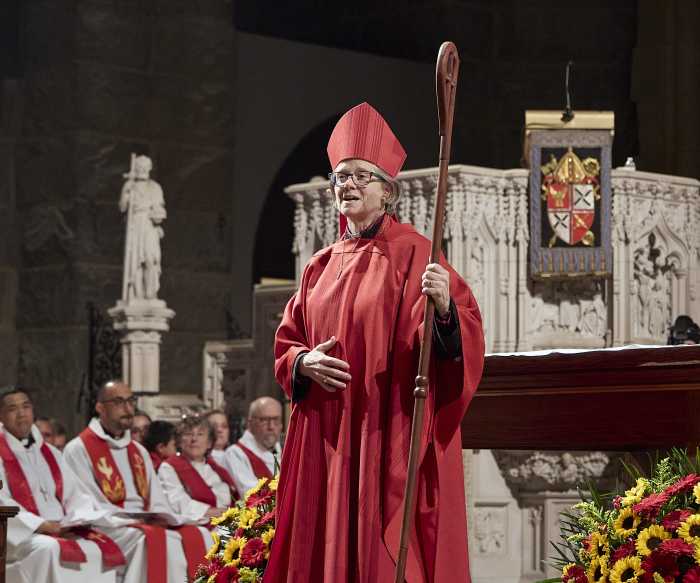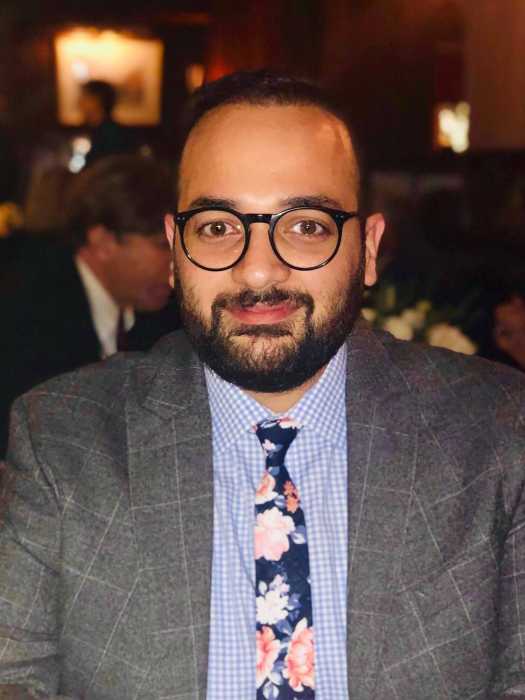LGBTQ Catholic leaders are voicing strong criticism after the US Conference of Catholic Bishops (USCCB) voted to bar their hospitals from providing gender-affirming care.
The outrage among queer Catholics stems from the USCCB’s Nov. 12 approval of a revised version of the Ethical and Religious Directives for Catholic Health Care Services, which stipulates that Catholic healthcare practice “does not allow for medical interventions that alter sexual characteristics absent an underlying condition.”
“Catholic providers will continue to welcome those who seek medical care from us and identify as transgender,” noted a statement by Sr. Mary Haddad, president and CEO of the Catholic Health Association of the United States. “We will continue to treat these individuals with dignity and respect, which is consistent with Catholic social teaching and our moral obligation to serve everyone, particularly those who are marginalized. Catholic health care will also continue to advocate for the right of everyone to access high-quality health care.”
The Catholic health ministry consists of more than 650 hospitals and 1,600 long-term care and other facilities across all 50 states and represents the largest group of non-profit health providers in the US, according to the Catholic Health Association of the United States.
The Catholic Health Association purports to “raise a collective passionate voice for compassionate care,” but Francis DeBernardo, who leads New Ways Ministry, a Catholic ministry for LGBTQ people, begs to differ. In a lengthy written statement, DeBernardo blasted the USCCB, saying the new directives “are neither ethical nor religious” and “will harm, not benefit transgender people.”
“In a church called to synodal listening and dialogue, it is embarrassing, even shameful, that the bishops failed to consult transgender people, who have found that gender-affirming medical care has enhanced their lives and their relationship with God,” DeBernardo said. “Moreover, the USCCB did not consult the available wealth of medical and psychological research. Part of Catholic social ethics requires an investigation of current scientific knowledge; yet the bishops failed to seek any guidance from, or consultation with, the World Professional Association for Transgender Health (or any other mainstream healthcare organization), which advocates policies that eliminate stigma and increase access to safe and legal gender-affirming care.”
DeBernardo further noted that the bishops’ directive resembles the transphobic actions of President Donald Trump, who signed an executive order in January entitled “Protecting Children from Chemical and Surgical Mutilation,” which aims to ban federal funding for gender-affirming care for people under 19 years of age and directs the Health and Human Services secretary to “take all appropriate actions to end” gender-affirming care.
“In adopting these directives, the bishops’ message has power beyond the perimeter of the Catholic Church,” DeBernardo said. “Unfortunately, it gives a blessing to people who seek to deny, hurt, and too often, even murder transgender people. The directives will be seen as part of the continuing disturbing trend in the U.S. to deny the reality of transgender identities, a movement led by the Trump White House.”
Marrianne Duddy-Burke, who leads another LGBTQ Catholic organization known as DignityUSA and has a trans son, said the policy change “will cause tremendous harm to many individuals and families,” noting that many trans people will now be prevented from receiving important and necessary medical care.
“This means that the people least able to have a choice in where they get treatment will be those most harmed,” Duddy-Burke said. “The social teachings of our faith compel us to remove oppressive structures. Instead, our bishops have just erected new obstacles for already vulnerable people. This is shameful.”
DeBernardo made the case that some bishops who support trans individuals may decide against enforcing or even recommending the new policies at Catholic hospitals in their respective dioceses.
“The directives are not binding on any individual bishop or diocese,” DeBernardo said.


































